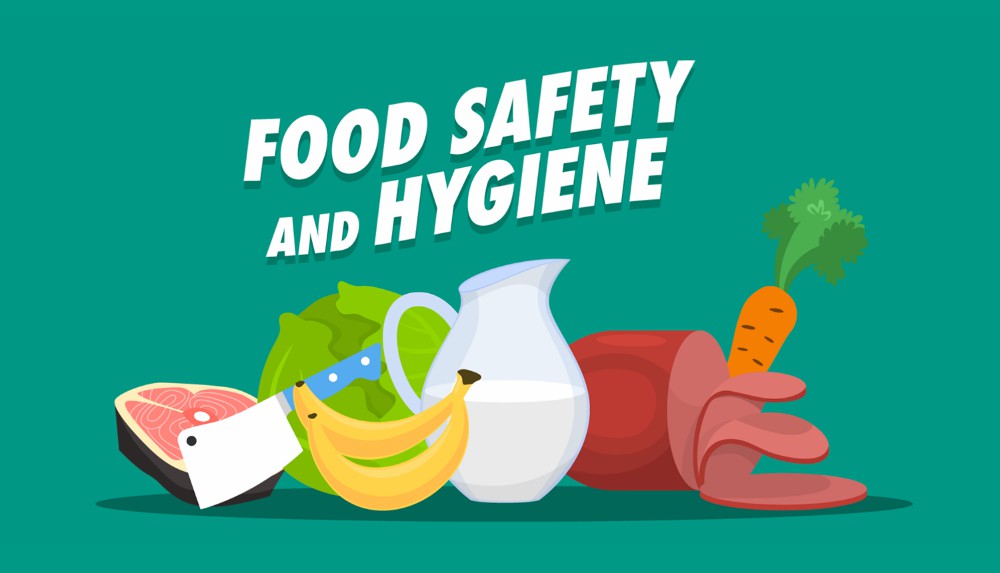The Essential Role of HACCP Training in Ensuring Food Safety Compliance in Ireland
Food safety is paramount for all businesses within the Irish food industry, from bustling restaurants in Dublin to catering operations in Cork and food manufacturers in Galway. Understanding and implementing HACCP (Hazard Analysis and Critical Control Points) principles is not just a regulatory requirement; it's a commitment to public health and quality assurance. This blog will delve into the importance of HACCP training for food safety compliance, focusing on how it reduces risks, enhances standards, and fosters consumer trust.
What is HACCP?
The HACCP system is a preventive approach to food safety that identifies, evaluates, and controls hazards throughout the food production process. This proactive methodology is integral to maintaining the highest standards of hygiene and safety, ensuring that food handling and preparation techniques minimize contamination risks. To date, HACCP has been recognized as a global benchmark for food safety management.
Why HACCP Training Matters
For any food-related business, obtaining HACCP certification through structured training is crucial for several reasons:
- Legal Compliance: HACCP certification ensures alignment with Irish and EU food safety laws, protecting your business from legal issues and fines.
- Reduction of Contamination Risks: Comprehensive training equips staff with knowledge on how to mitigate food safety hazards, significantly lowering contamination risks.
- Improved Food Handling Standards: Regular HACCP training covers essential topics like proper hygiene, sanitation, and risk control measures, effectively enhancing your operation's overall food handling procedures.
- Enhanced Public Health Protection: Implementing HACCP directly contributes to reducing foodborne illnesses, safeguarding the health of consumers.
Understanding HACCP Principles
To successfully implement HACCP, it is essential to understand its seven principles:
- Conduct a Hazard Analysis: Identify potential hazards in the food production process.
- Identify Critical Control Points (CCPs): Determine points in the process where control can be applied to prevent or eliminate hazards.
- Establish Critical Limits: Establish maximum and minimum limits for each CCP to ensure safety.
- Establish Monitoring Procedures: Monitor CCPs to ensure they remain within critical limits.
- Establish Corrective Actions: Define steps to be taken when monitoring indicates a deviation from critical limits.
- Establish Verification Procedures: Ensure the HACCP system is functioning effectively.
- Establish Record Keeping and Documentation Procedures: Maintain comprehensive records of all policies, procedures, and monitoring efforts.
The HACCP Training Process
Gaining HACCP certification typically involves enrolling in a HACCP training course designed to cover the critical aspects of food safety compliance. The training process commonly includes:
- Structured Learning: Many training courses offer both Level 1 and Level 2 HACCP training suitable for different levels of expertise.
- Practical Exercises: Hands-on activities and case studies help solidify understanding.
- Online Options: Flexibility with online HACCP training courses, allowing staff to learn at their own pace.
Common HACCP Violations and How to Avoid Them
Understanding common pitfalls in HACCP compliance can save businesses significant time and resources:
- Ignoring Staff Training: Continuous education and awareness are crucial for maintaining high standards.
- Inadequate Documentation: Failing to keep accurate records can lead to compliance issues during audits.
- Neglecting Corrective Actions: Promptly addressing issues found during monitoring is essential to prevent hazards.
The Business Benefits of HACCP Certification
Besides meeting compliance requirements, HACCP training and certification offer numerous business advantages:
- Boosts Customer Confidence: Businesses with strong food safety practices attract more customers.
- Enhances Reputation: Being HACCP certified showcases a commitment to quality and safety.
- Mitigates Legal Risks: Compliance with food safety laws protects businesses from potential lawsuits or fines.
Conclusion
For food businesses in Dublin, Cork, Galway, Limerick, Waterford, and Belfast, obtaining HACCP certification through effective training is indispensable for success. By investing in HACCP training, you not only comply with food safety regulations, but also enhance your operational practices and contribute to public health protection. Take the first step toward food safety compliance today — consider enrolling in a HACCP training course tailored to your business needs!
For more information and to enroll in our HACCP training courses, visit here or contact us at [email protected].



 349,500 Offered Certificates
349,500 Offered Certificates
 24/7 Online Training
24/7 Online Training
 Money Back Guarantee
Money Back Guarantee
 Fully Accredited Courses
Fully Accredited Courses
